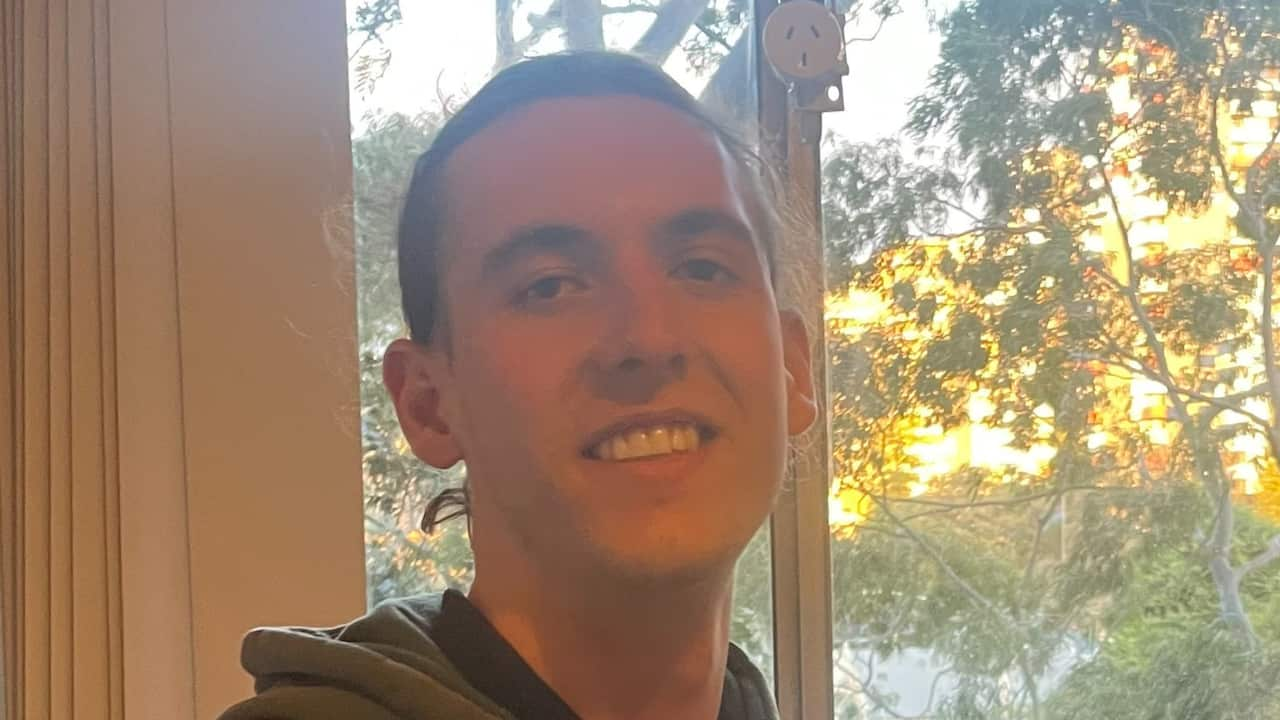When every ping or buzz on our device could be a scammer, how can we recognise any red flags and protect ourselves? Insight hears from those who've been hit hard by scammers but are fighting back. Watch Insight episode Scammed on SBS On Demand.
When Vicky Schaefer noticed a $1,500 transaction in her banking app she knew she hadn't made herself, she immediately contacted her bank's fraud department.
She asked the bank to freeze all her accounts, which the it did, and it told her it would call her back when it had more information about the fraudulent charge.
Three hours later, Vicky received a call — from someone she thought was her bank — claiming someone was trying to breach her account again.
"[The caller ID said it was my bank's] fraud department. I thought that's amazing; they got back to me so quickly."
But it was not her bank. It was a scammer who had cloned the bank's phone number.
The scammer then took over Vicky's phone via verification codes and took $47,000 out of her account while she was on the phone with them.
"All I could do was to sit there and watch all my money just get taken out of my account," Vicky said.
"These scammers put you in such a panic, you can't think straight."
Losing a house deposit
Tech-savvy Louis May never thought he'd fall victim to a scam.
"I think I was quite arrogant about it at the time," Louis told Insight.
"I thought ... I'm a young person. I'm not going to fall for a phone call where someone is pretending to be someone else."
So, when Louis received an email from an address he thought was his lawyer's, he didn't anticipate it would lead to him losing his $110,000 house deposit.

Louis had been working 10-hour shifts, six days a week, as an electrician for years, and had saved enough money to by his first property by the time he was 23.
"It felt good to break the barrier where there's a whole heap of people that think young people can't get into the market," he said.
Through the buying process, Louis' lawyer had contacted him using two different email accounts. So, when he received an email from a third account instructing him to fill out a Property Exchange Australia (PEXA) form, he didn't think much of it.
Following the instructions from the third email account and after speaking with his bank, he transferred $110,000 into an account of a different bank.
On the day of his property's settlement, Louis' lawyer called to tell him that the promised $110,000 wasn't in his account.
"When I said: 'I did what you had told me', and he said 'I'd never emailed you a PEXA form', my heart dropped.
"That was the moment that I realised I was scammed."
Disrupting the scam syndicates
A cybercrime is reported every six minutes in Australia, according to Cody Nagel, who works for the Australian Federal Police (AFP) in its Joint Policing Cyber Crime Coordination Centre.
He said scams are driven by internationally based organised crime networks, often operating like a business with different arms, with scams funding other kinds of criminal activity.
"These people are working every single day ... They're working in the morning and the night, targeting different jurisdictions based on the most lucrative time" for when people are most susceptible," Nagel told Insight.

Nagel said the AFP is focused on bringing public and private industry together to disrupt and prosecute scams.
"I can look across the room at somebody from a financial institution and say: 'Do you have a bank account with this number? Can we stop that money? Can we get that money back for this customer?'"
With further collaboration and sharing of intelligence between banks and law enforcement, Nagel suggests scams can be disrupted.
"We acknowledge that we can't actually arrest our way out of this problem," he said.
Australia's world-first scam prevention legislation
In February, Australia passed world-first scam prevention legislation with the new Scams Prevention Framework.
Under this legislation, banks, mobile networks, and social media companies are required to take reasonable steps to prevent, detect, disrupt, and report scams, or face significant fines.
The Australian Financial Complaints Authority (AFCA) acts as the external dispute resolution scheme for the first three sectors (banks, telcos, and social media companies) — helping people to resolve disputes with banks, insurers and superannuation funds.
However, some consumer groups have criticised the framework legislation, as it won't force offending businesses to automatically compensate scam victims.
The UK has introduced a scheme that forces banks to reimburse a customer who has been scammed, usually within five days — provided they haven't acted with gross negligence or fraudulently. Some groups have called for a modified version of the UK model to be implemented in Australia.
AFCA CEO David Locke said Australian law has largely been inadequate when it comes to scams.
He believes that mandatory codes would ensure stronger action and a stronger chance for fair dispute resolution.
"Most people out there would never for a minute think that banks are not required to check the name that's given against the BSB and account number," he told Insight.
(Many banks have started to implement confirmation of payee this year, an anti-scam measure checking that bank details match the account name.)
Locke said he hopes the new framework legislation will lead banks to take further steps to protect consumers.
Dealing with the aftermath
Vicky had a trying time getting financial reparation after she was scammed out of $47,000.
Even though it was the bank's number that had been cloned, Vicky felt it was blaming her for the funds lost in the scam.
However, after hiring a lawyer, Vicky says her bank reimbursed her almost a year later.
Louis' mum Alex Brooks helped him navigate the aftermath of being scammed.
"Someone obviously had breached his confidential home-buying details," she said.
Since the scam, Alex has interviewed multiple cybersecurity experts and has paid thousands of dollars for website forensics. She says that her findings infer that Louis wasn't responsible for the breach of his details.
Alex says Louis' bank offered him a remediation payment of $1,000, which he did not accept.
"It beggars belief what goes on as people try to seek justice and restitution," Alex said.
I thought it was going to be a really, really good time in my life. But unfortunately, I've been knocked way back down.Louis May
Unlike Vicky, Louis has not been able to recover the money he was scammed out of. He says he still feels the toll.
"I thought it was going to be a really, really good time in my life. But unfortunately, I've been knocked way back down."
Louis, now 24, was still able to settle on the small apartment after receiving a loan from a family member; but is now paying an extra $600 a month in interest.
"It's pretty heartbreaking," he said.
"I feel like I'm further back than I was last year — even still now."
This article was originally published in July 2025.
If you or someone else is in immediate danger, call 000.
If you've had your personal or financial information stolen, immediately contact your bank or credit card provider and tell them to stop any transactions. You can report scams to Scamwatch or ReportCyber.
For urgent support, contact Lifeline (13 11 14) or Beyond Blue (1300 22 4636).
And for more stories on sex, relationships, health, wealth, grief and more, head to Insightful — an SBS podcast series hosted by Kumi Taguchi. Follow us on the SBS Audio App, Apple Podcasts, Spotify, or wherever you get your podcasts.
Insight is Australia's leading forum for debate and powerful first-person stories offering a unique perspective on the way we live. Read more about Insight
Have a story or comment? Contact Us


